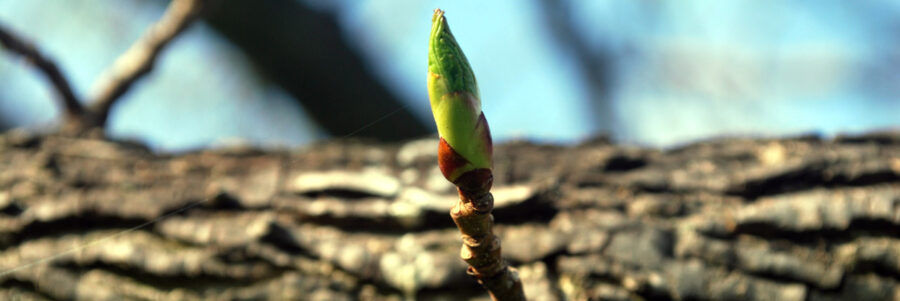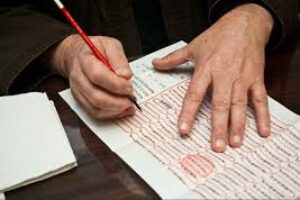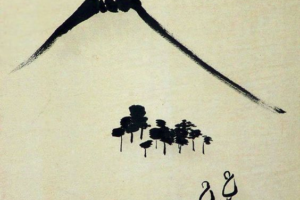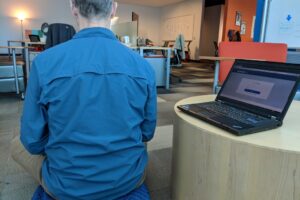
This time of year, Easter or Passover brings to mind the life, death, and resurrection of Jesus, a foundational tenet of the Christian faith. The question of whether Buddhists believe in reincarnation arises frequently in conversations with Christian friends and those of other religions, as well as family members. Zen students will often ask what they should say when a person who is not Buddhist brings this up.
Buddhism, at least as it is promulgated in the form of Zen practice, does not depend upon beliefs, or scripture, but upon one’s own direct experience.
zenkai taiun michael elliston, roshi
Suggestions for responding to friends and family, or even strangers, we will get to later. Firstly, it is important to understand that Buddhism, at least as it is promulgated in the form of Zen practice, does not depend upon beliefs, or scripture, but upon one’s own direct experience. Your own experiential insight is where you will find the answers to this and other thorny issues. Does that mean that in zazen you will have insight into the specific questions of life and death, and what happens after death? Not necessarily. But if you can come to accord with the causes and conditions of your own existence, outside a framework of beliefs, you will be able to see the relative place and importance of these ideas.
Zen practitioners do not believe in reincarnation, rebirth or resurrection. The easiest position to take may be one of agnosticism—one day we will see for ourselves—but I do not think this is the Zen way. In Zen, we are not contented to wait until we are on our deathbed to confront these issues. We want, and need, to know not in order to die, but in order to live. If we go through life avoiding or delaying recognition of the true conditions of existence—impermanence, insubstantiality, imperfection—we are not really living. We are living in a fantasy.
Setting aside resurrection and being born again, as these are Christian concepts with which I am only slightly familiar, let’s look at the notion of reincarnation and the principle of rebirth. Reincarnation as discussed in early Buddhism originated in the Hindu faith as far as I can tell. Like most of Buddha’s teachings, the doctrine of rebirth is not a version of reincarnation, but a corrective teaching. Buddha necessarily taught in the context of the time, using the language and vocabulary derived from the cultural memes of the Indian society. He knew that his teachings would be unpopular, as they went against the current and grain of the popular beliefs. Reincarnation was apparently one of the most widely accepted, cherished, and closely-held beliefs of the time.
When Buddha proclaimed that he found no evidence of the atman, or soul, of Hinduism, in his awakening, this directly contradicted and challenged the conventional, received wisdom. He had not the courage of his convictions, but confidence based on actual experience. He had seen directly the disintegration of the sentient being, the emptiness of the aggregates (Skt. skandha), and the lack of any self-existent entity in the remainder of the process. He could testify from direct experience that the dearly-beloved soul of the individual is a delusion.
The doctrine that Buddha taught regarding the universal cycle of birth and death, based upon his experience, was that of rebirth, which is not the same as reincarnation. Rebirth depends for its understanding upon the individual’s penetrating to the core of a fuzzy logic that is not reducible to ordinary conceptual analysis.
The process may be likened to the growth of a tree from a seed. If the causes and conditions are correct, that is that the seed, after leaving the parent tree, lands in a place conducive to growth—sufficient sunshine, water, and nutrients from the soil—it will take root and grow. This also takes into account the absence of negative causes and conditions, such as landing in infertile surroundings or being eaten by a bird (although the latter does not always prevent growth, as testified to by plants from droppings along fence lines). The new tree will dependably be the same species as the parent tree(s). The new tree will not accidentally turn out to be a different kind of tree—a pine will beget a pine, and a maple will beget a maple. While it cannot be argued that the new tree is the same as the old, it also is apparent that the two cannot be separated. Nowadays we “explain away” the mystery of this by pointing to DNA, as if that closed the books on the case. And with genetic manipulation, as well as the hoarier technique of grafting, we can dramatically alter generations of plants and animals.
Analogy to the death and rebirth of sentient beings is less than totally apt, but worth considering as a way of breaking the sets of our thinking. The one that dies is not the same as the one that is reborn, but cannot be separated, either. There is no soul or atman that transmigrates, but there is posited a leftover karmic effect, called the remainder. This is regarded as the cause consciousness from the prior existence that helps to shape the effect consciousness of the present existence, along with all the other causes and conditions, such as parentage and all other aspects of nature and nurture that contribute to the makeup of any individual sentient being, human or otherwise. This principle helps to explain differences in temperament (inborn traits) in identical twins, for example.
So the seeds of future lives and consequences are planted in this present life, which bears the fruit of past lives as well. To those who say—Well, I have no evidence of rebirth—I say, what do you think this is, meaning this present life. Which of the two propositions is more absurd—that this is the one and only birth that we are involved with throughout eternity—or that this present life is part of an ongoing process, a continuum, in which we are, always have been, and always will be, engaged? Both are equally plausible or equally ridiculous.
Buddhism’s teachings are not logical assertions that compete with other teachings based on beliefs. The teachings of Buddhism do not contradict the findings of science, either. The fundamental teachings attributed to Buddha’s First Sermon following his profound insight—the Four Noble Truths—are so basic that they defy argument. They are considered noble because they are not effected by causes and conditions. Change is universal and absolute, the foundation of the unsatisfactoriness that all human beings, including Buddha, find in their experience (Skt. dukkha). The source of this existence, which is of the nature of suffering—there is no existence possible without change—is the craving (Skt. trishna) of all beings for existence itself, with all of its subsets of cravings in daily life. The great good news brought by Buddha’s experience, and transmitted through the lineage, is that suffering can come to an end (Skt. nirodha) through relinquishing that very craving—cessation—which is likened to blowing out a flame, but it is the flame of desire, not of life itself. The path (Skt. marga) may vary somewhat by conditions, but in human terms basically reduces to the eight dimensions of view and thought; speech, action and livelihood; and mindfulness, effort and meditation. Each of which becomes “right” when we stop misapplying our own concepts and opinions.
So it is necessary to give up our preconceptions and opinions of what is called reincarnation, rebirth, and resurrection. We can see the all-too-human impulse to survival in the first and last. The Buddhist ideal of the bodhisattva vow, dedicating oneself to the salvation of all others, entails a commitment to endless rebirth. This Samsara ocean of patience is the only realm in which self-awakening and awakening others can take place. If Nirvana is another realm, it must be empty of inhabitants because only bodhisattvas can go there, and they choose to stay here. Thus, our challenge and charge is to transform this Samsara into Nirvana. Which it already is, so there is not much work to be done. The only task we have is to wake up to the reality. Which means we must disabuse ourselves of our ignorance, the only thing that is in the way of insight. If we do so, our personal confusion and all concerns about reincarnation, rebirth and resurrection will evaporate. But we still may not find the skillful means to deal with inquiring people who want to know. I recommend one or all of three approaches:
1. Interview them about their beliefs
2. Tell them Buddhists do not believe in anything
3. Refer them to me for further dialog









